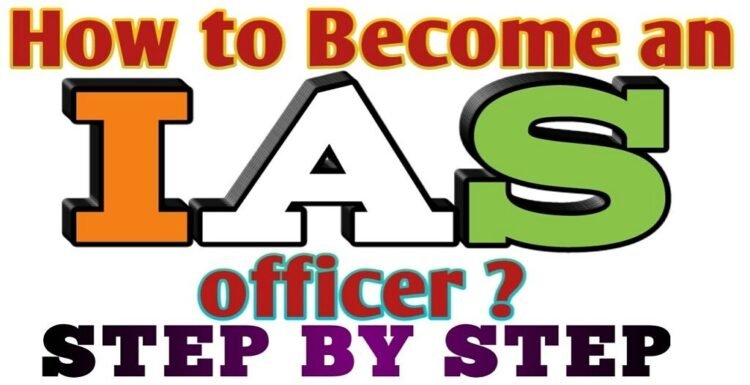How to become an IAS Officer?
- 1 How to Become an IAS Officer?
- 1.1 Qualification Criteria for IAS exam:
- 1.1.1 Age Limitation:
- 1.1.2 Nationality:
- 1.2 UPSC Paper Pattern
- 1.2.1 Prelims Exam
- 1.2.2 Mains Exam
- 1.2.3 Interview Round
- 1.2.4 IAS officers work in other departments:
- 1.2.5 Final Word:
- 1.2.6 Author Bio
Each year, the Union Public Service Commission (UPSC) conducts the Civil Services Exam for choosing aspirants for the IAS, IPS, IFS, IRS. Among them, IAS is the sought-after job and the highest service level.
But, if you want to become an IAS officer, you need proper guidance and mentorship for clearing the exam. The difference between success and failure is mentorship. How well a teacher guides you in your preparation is important. If you want a mentor in your preparation, you can join The Thought Tree as they provide the best IAS Coaching in Jaipur.
Overview of Indian Administrative Service (IAS):
IAS is the top-tier Government service that was established in 1946, and the Civil Services is a trademark of governance in India. IAS Officers are public servants who have to perform the duty of managing the routine events of the government, and also for devising and releasing the policy after discussing it with the chief minister of the department.
Responsibilities of an IAS Officer:
IAS officers are responsible for revenue administration, maintenance of law and order, and general administration of their department.
Here is a list of the responsibilities:
- Maintain law and order.
- To create an important policy and release it.
- Implement significant decisions and policies.
- Supervise the budget
- Making decisions and creating policies.
- Collecting revenues
How to Become an IAS Officer?
For becoming an Indian Administrative Service officer, you will have to clear the CSE (Civil Services Exam). The Union Public Service Commission (UPSC) conducts the Civil Services Exam each year. IAS is a challenging exam. Lakhs of students appear for this exam, but only a thousand get selected. The IAS exam is challenging, but anyone can clear the exam with the right guidance.
Before beginning your IAS journey, decide it and see if this is what you had wished for. If you want to serve the country and work for the people, you should choose IAS as a career option.
Qualification Criteria for IAS exam:
-
Age Limitation:
|
Category |
Age Limitation for UPSC |
Number of Attempts |
|
Economically Weaker Section (EWS) |
32 years |
06 |
|
General Category |
32 years |
06 |
|
OBC Category |
35 years |
09 |
|
SC/ST Category |
37 years |
Unlimited attempts until the age limit |
|
Physically Disabled Students Category |
42 years |
9 attempts until the age limit |
-
Nationality:
During posts like IAS, IPS, or IFS an aspirant must be from India. And for other services, the aspirant must be any one of the following:
- A citizen of India
- A refugee from Tibet arrived in India to settle permanently before January 01, 1962.
- A citizen of Nepal
- A citizen of Bhutan
- A person of Indian origin who has relocated from Kenya, Uganda, Pakistan, Burma, Ethiopia, Sri Lanka, Vietnam, the United Republic of Tanzania, Zambia, Malawi, Zaire, to permanently settle in India and also the aspirants who are from Nepal, Bhutan, Tibetan refuge and other Indian origin candidates from countries mentioned above will be given a certificate of eligibility issued by the Government of India.
UPSC Paper Pattern
-
Prelims Exam
Prelims are the first stage in the process of becoming an IAS officer. In this, the aspirant will have two papers (MCQs based), and the duration will be of 2 hours and 200 marks each. Paper-I consists of questions associated with geography, current affairs, history, and Paper-II questions are associated with analytical ability and comprehension. For wrong answers, there is a negative marking. For appearing for the mains exam, the aspirant will have to score 33 percent in the CSAT, Paper-II, and meet the given cut-off for Paper-I.
-
Mains Exam
After completing the prelims exam, aspirants appear for the second stage. In this, they will have to appear for nine papers. In the nine papers, the two are language-based, one is essay-based, and the four are general studies papers; But, two papers are optional. After clearing the mains exam and meeting the given cut-off, you will be invited for an interview round.
-
Interview Round
After clearing the prelims and mains exam, you will have to clear the final stage of the exam. The test is designed to determine the brainpower of the student. Moreover, the board members check your intellectual capacity, character, and interest level in current affairs.
Optional Subject Selection is Very Important:
Choosing a good optional subject is very important. In the IAS exam, you will have to select the subject out of25 subjects. While selecting a subject, choose the subject which sparks an interest in you. After 10th, pick the subject you are interested in and choose for the civil service exam.
|
Post |
Pay Scale |
|
Sub-Divisional Magistrate |
50,000 ~ 1.5 L |
|
Cabinet Secretary of India |
2.25 L |
|
District Magistrate (DM) |
50,000 ~ 1.5 L |
|
Union Secretary |
2.25 L |
|
Chief Secretary of a State |
2.25 L
|
IAS officers work in other departments:
Aspirants after clearing the UPSC exam work as a public servant and get the opportunity to serve the country as an IAS officer. But, before joining the respective department, the aspirants go through a training process. The IAS officers are selected to work for several departments of administration.
Final Word:
To sum it all up, I hope that this information will be helpful to you. It is clear that becoming an IAS officer is not at all easy. Many people will tell you that you shouldn’t prepare for it. Keep in mind that: No pain, no gain, which means that every good thing comes with a price. The road to becoming an IAS officer is filled with many hurdles, but with hard work, a lot of dedication, effort, and good guidance and mentorship, one can easily become an IAS officer.
Author Bio
My name is Ajay Sharma. I am a Digital Marketer by profession and content writer by passion. I have been working in the education industry for the last 4-5 years. I am passionate about writing content on the Civil Services Exam and other state examinations. From my personal experience, IAS is a tough nut to crack, but if you work hard, join a good IAS Coaching, and work with a good approach, then you can crack the exam.

















